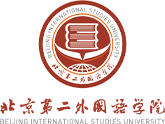
The 19th Beijing Dialogue on China Tourism Development & China's Modernization and Tourism Power Forum 2024, hosted by Beijing International Studies University (BISU), took place at Jiuhua Resort in Beijing on Nov 1.
Over 200 experts, media representatives and industry leaders attended the meeting.
The opening ceremony was presided over by Li Pengbo, secretary of the CPC School of Tourism Sciences Committee.
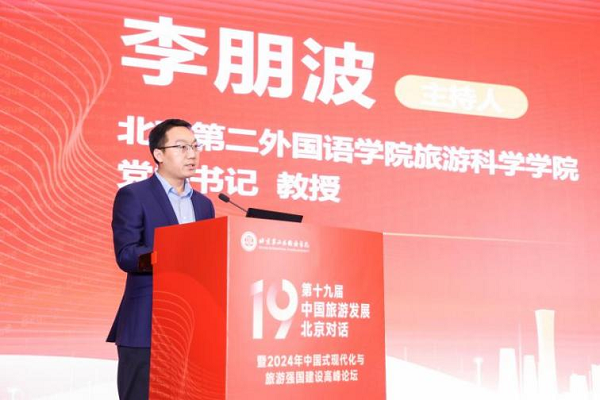
Li Pengbo presides over the opening ceremony of the 19th Beijing Dialogue on China Tourism Development held on Nov 1.
Chang Lin, an official at Beijing Municipal Bureau of Culture and Tourism, mentioned in his speech Beijing’s intention to become a world-class tourism city and a global tourist destination by 2029.
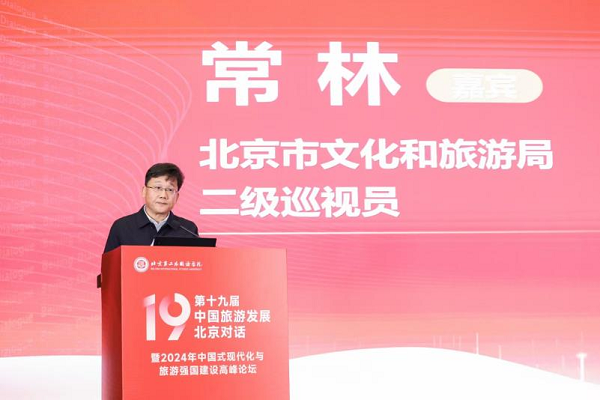
Chang Lin delivers a speech at the forum.
Ji Jinbiao, deputy secretary of the CPC BISU Committee and president of the university, talked about the university and its achievements over the past 60 years, emphasizing that through outstanding research and social services, it has contributed to the development of China's culture and tourism industry, the integration and promotion of culture and tourism, the building of national cultural parks and the construction of the Belt and Road Initiative.
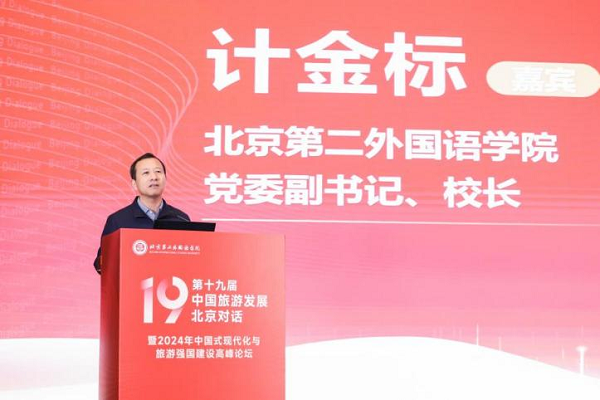
Ji Jinbiao delivers a speech at the forum.
Sun Weijia, a former official at the Counsellor's Office of the State Council, pointed out that China possesses immense potential and inherent strengths for organizing MICE, that is, meetings, incentives, conferences and exhibitions.
In the keynote speech section, the lecturers discussed humanistic economics in tourism, the role of Chinese companies in the culture and tourism industry, and the role of exhibition industry in building Beijing into an international exchange center.
Xu Haijun, the secretary of the CPC China Cultural Media Group Committee and chairman of the group, made a speech on the impact of new quality productive forces on the culture and tourism industry. He said that the new quality productive forces could empower the high-quality growth of the culture and tourism industry, deepen reform in the industry and enhance its modernization.
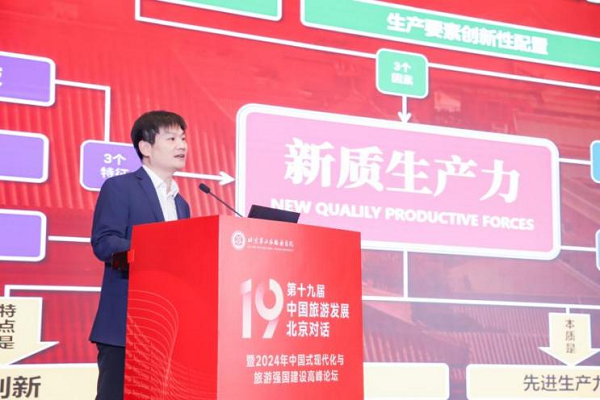
Xu Haijun emphasizes the role of new productive forces in the culture and tourism industry.
Liu Wei, one of Huawei's presidents, said the development of artificial intelligence in China should shift from technology-centered to client-centered, leveraging its advantages of rich data to forge a unique technological edge.
He said that in the culture and tourism industry, Huawei provides a computing foundation and it will collaborate with partners to jointly create a prosperous business climate in order to facilitate the wide application of new technologies. It will also support the cultivation of professionals.
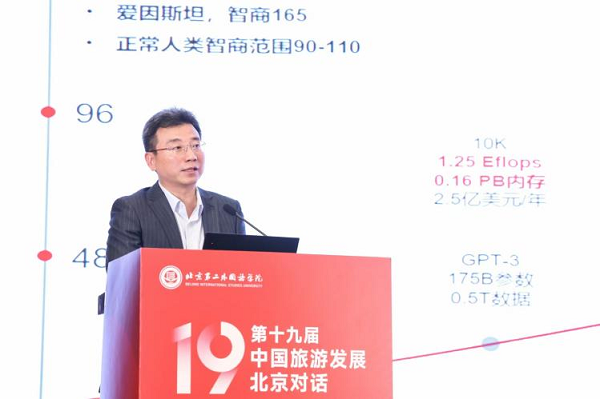
Liu Wei speaks about Huawei's role in the culture and tourism industry.
Three roundtable discussions were held, focusing separately on AI, the modern tourism industry and new quality productive forces.
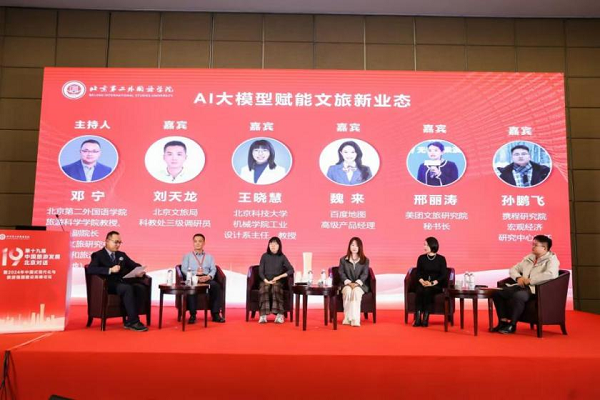
Guests engage in a roundtable discussion.
It was suggested in a discussion among the guests that Beijing's tourism development should put special emphasis on the application of large-scale AI models. Wang Xiaohui, a professor at University of Science and Technology Beijing said that the integration of AI technology and design thinking is essential in tackling users' problems and enhancing users' experiences.
She also mentioned that in this process, the improvement of algorithms is necessary. According to the guests, China's technological giants play a critical role in this respect. For example, Baidu Maps is dedicated to providing big data and AI large model solutions to the culture and tourism industry, Wei Lai, a senior product manager at Baidu Inc, a Chinese technology giant, said.
Xing Litao, a researcher at Meituan, a popular on-demand service platform in China, said that through its technological capabilities, AI would be brought to life in travel scenarios.
The internet platform Ctrip serves as a core driver in enhancing the efficiency of the tourism market by providing products and meeting demands, thus achieving an increase in efficiency, Sun Pengfei, a researcher from Ctrip said. He mentioned that it has developed a large language model named "Quest", which aims to facilitate transactions through AI technology, assisting users in finding suitable products and uncovering product highlights, thus achieving precise matches between products and customers.
The participants also discussed the modern tourism industry. According to the guests, culture is regarded as premier tourism resources, and deeper integration of culture and leisure activities should be promoted. Innovation is also a critical attribute of the modern tourism industry.
Zeng Bowei, a professor at Beijing Union University said that tourism requires technological iteration, which can be achieved through developing new quality productive forces. Zhang Zuqun, an associate professor at Beijing Institute of Technology, mentioned that at the same time, three major challenges -- the rapidly changing demand for travel of younger tourists, the lagging process of digital transformation and the difficulty of managing data accumulated in smart scenic spots – must be addressed wisely.
The discussion also turned to tourists' desire for emotional value in their experiences in tourism nowadays and how that makes developing products that cater to these needs an arduous task.
Beijing Dialogue on China Tourism Development, established in 2004, has concentrated on addressing major theoretical and practical issues pertaining to the Beijing's and the nation’s tourism development. Bringing together figures from academia, industry and research, the dialogue provides guidance for the development of culture and tourism industry.

Links
